BLOG
Recent
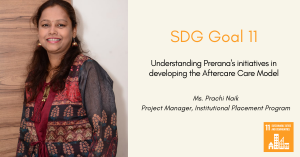
SDG Goal 11- Understanding Prerana’s Initiatives in Developing the Aftercare Care Model
Ms. Prachi Naik joined Prerana in 2006 and has been a part of our team for almost 15 years now. She is the Project Manager of our Institutional Placement Program and closely works with children in need of care and protection. She coordinates with various stakeholders for admission of children in need of care and protection in Children’s Homes, prepares social investigation reports, individual care plans and conducts follow-ups to ensure their holistic development.
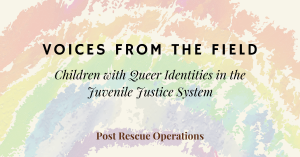
Supporting Children with Queer Identities in the Juvenile Justice System
In this blog, Prerana’s social worker and counsellor share their experience of working with children who are exploring their gender identities. Children from the LGBTQ community who are a part of the Juvenile Justice system might face oppression within a system that is expected to support and protect them. Hence, it is crucial for stakeholders to be aware of systemic challenges while being sensitive to the needs of the children.

One day in Prerana
I have been a part of Prerana team since 2016, as a Project Manager in Sanmaan. I primarily work with the children found begging in the streets enabling them to enjoy their right to wellbeing and dignity and break the intergenerational cycle of backwardness and begging in Mumbai and Navi Mumbai.
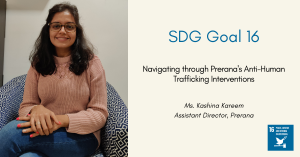
SDG Goal 16- Navigating through Prerana’s Anti-Human Trafficking Interventions
Ms. Kashina Kareem has been associated with Prerana for more than 5 and a half years. She is currently working under the anti trafficking center, heading the post rescue operations project. Among other things at Prerana, she works with a team that provides on field support to both state and non state stakeholders working with victims of commercial sexual exploitation and trafficking.
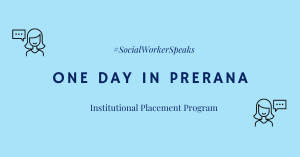
One day in the life of a social worker
I have been a part of Prerana team since 2017, as a Project Coordinator in the Institutional Placement Program. I primarily work with the women in the red-light areas of Kamathipura and Falkland Road, and their children. It took me some time to understand the women, the children, their needs and problems and Prerana’s intervention. Observing during interactions with the women while attending meetings and in-house trainings and conducting outreach visits gave me an opportunity to enrich my knowledge and understand the work better.
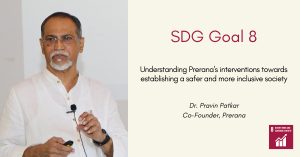
SDG Goal 8- Understanding Prerana’s interventions towards establishing a safer and more inclusive society
Dr. Pravin Patkar co-founded Prerana in the year 1986, along with Priti Patkar. He also founded Asia’s first Anti-Human Trafficking resource center in the year 1999, supported by the US Government. He has also served as an expert on several national and international agencies working in the anti-human trafficking sector. Aside from his commendable work in the anti-trafficking sector, Dr. Patkar is an academic and has been in the teaching profession for over forty years.
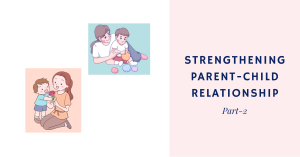
Sensitive communication with children: A guide for parents
We conduct various interactive sessions with the mothers to help them understand the importance of sensitive communication with children, and how can one practice it effectively. During an interaction with our counselor Ms. Shruti Chatterjee, she shared how we can communicate effectively with children in various situations, and make the child feel comforted.

Let’s Talk- A session on sensitive communication
Ms. Shruti Chatterjee joined Prerana as a Counsellor in 2020. She works with children who avail services of Prerana’s Night Care Centre, children who have been placed in Child Care Institutions as children in need of care and protection and with children at Naunihal, a Children’s Home for girls managed by Prerana. She also works with parents and other caregivers, both at the individual level and as a group.
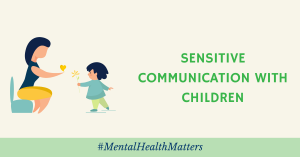
Understanding the impact of labeling on children: A counselor’s observations
Working with children in Child Care Institutions involves multiple aspects. Psychological counselling being one of them, involves addressing the child’s needs and discussing these needs with the child’s caseworker. A counselor has to work together with the child, and other significant people in the child’s life to make the casework effective. The following case study aims to provide an insight towards the challenges that a child could face in the CCI and how the self-esteem of the child could be affected by the environmental as well as innate factors.

